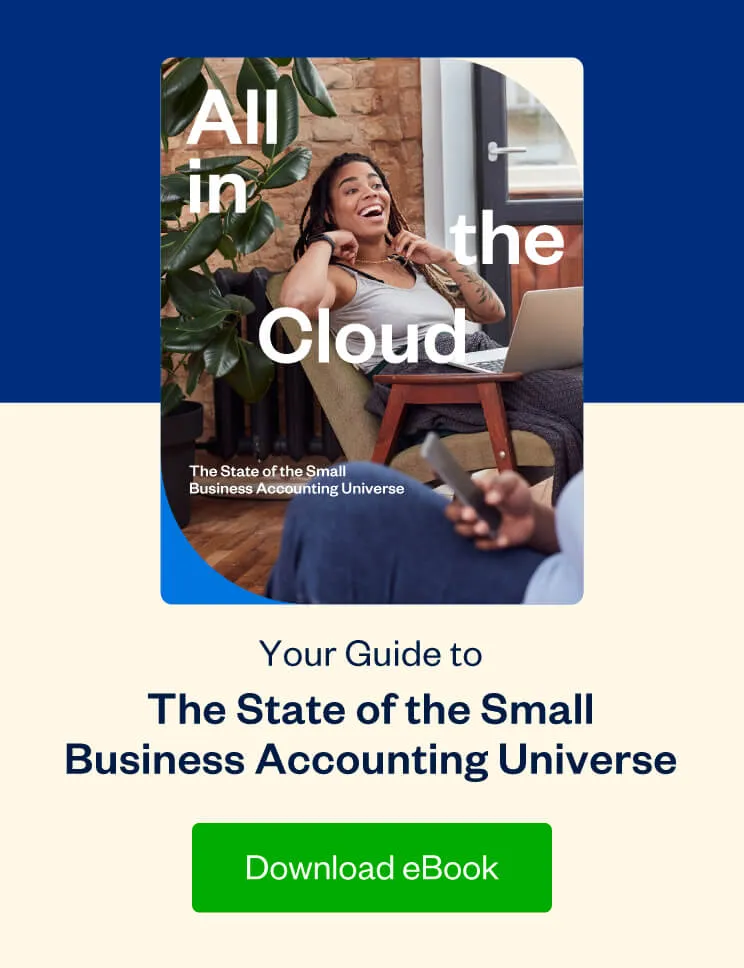The tax filing deadline has come and gone. With yet another Canadian tax season in the books, now is a perfect time to reflect and position yourself better for a successful season next year.

Small business owners aren’t expected to be tax experts, but they are expected to file an income tax return. Your focus, though, is on your business and doing the work you love.
But if you avoid dealing with taxes until tax time, or even the end of the tax year, those months before you file can be unbearable—a time of panic and stress while you scramble to gather receipts and records. Even if you hand off your annual income tax return duties to an accountant, there’s still work to be done. That said, you should treat your taxes like any other business practice: An ongoing process that needs your attention throughout the tax year.
Here are a few tips to get you started on the filing process early and keep you on track to meet the tax deadline.
Table of Contents
Toss the Shoebox, Find a Better Way to Log Expenses
Does your team affectionately refer to you as the shoebox receipt collector? Or does your accountant cringe when you drop the box off at their office? The shoebox method is a highly inefficient way to manage your expenses, making tax time even more stressful. Don’t wait until the last minute to add up expenses for your tax return. Keep close track of them throughout the tax year. Logging them as you go is more accurate and saves you time in the long run.
Chances are, it will be easier for you to find 10 or 15 minutes a week to deal with taxes instead of spending hours or even days dealing with them in March or April.
Separate Your Business and Personal Finances
Do you have a separate checking account and credit card for your business? Maintaining separate accounts makes tracking business income and expenses for your tax return much more straightforward. Sorting through all the transactions on your personal credit card to split them between business or personal can be a big job all at once. Not to mention categorizing all the business transactions!
Automate Your Accounting Process
If you haven’t already, it’s time to bring your business into the 21st century. Accounting and invoicing software, like FreshBooks, can be instrumental in driving efficiency and accuracy all year round—not just for your federal income tax returns. Modern accounting software can connect to your bank account, automatically sync transactions, and even categorize expenses for you. This saves you time every month and ensures you won’t miss any deductions when you file your income tax returns at tax time.
Pro Tip: To continue to encourage a more streamlined process for your entire business, consider downloading an app to log your business travel, like FreshBooks Mileage Tracker. To take a deduction for business use of a vehicle, the CRA requires a mileage log. Estimates just won’t hold up in an audit, so save yourself the trouble of trying to recreate a year’s worth of driving using a calendar and Google Maps the next time you file your income tax return.
Back Up Your Electronic Records
Today, many options exist that allow you to quickly and inexpensively store your data in the cloud. If you’re still storing electronic documents on your hard drive or a local server, what would happen in the event of a disaster? Get in the habit of backing up your files to a cloud or a remote location. Maintaining backups of the crucial information you need to prepare and file a tax return is essential.
The CRA won’t go easy on you just because your records are missing. Just in case, have a contingency plan in place for all your important tax return documents.
Luckily, accounting and invoicing software, like FreshBooks, can be instrumental in driving efficiency and accuracy all year round.
Work With an Accountant
Many small business owners try to muddle through tax preparation and tax returns on their own. Some people actually enjoy it! Going the DIY route is fine if you enjoy the income tax process.
But keep this in mind: As your business grows, calculating how much you owe on your federal tax return will get more and more complicated. And that’s not even taking into account sales taxes too!
If you dislike bookkeeping and income taxes and thus put them off like your most dreaded chore, you could be doing you, your business, and potentially your tax refund a huge disservice. An accountant with industry expertise can provide sound advice and help you plan your federal tax return appropriately.
Pro Tip: Give your accountant access to your cloud-based accounting software to help file tax returns. This access to real-time data can help them give you even better advice throughout the tax year.
Make the Most of Your Deductions
Did you know that tax laws aren’t just rules to be followed? Most taxpayers don’t. In many cases, the tax act is actually designed to incentivize certain behaviors. You can use tax laws to your advantage if you know what they are.
Are you aware of the tax credit for research and development activities? Are you taking advantage of the tax benefits for contributing to a Registered Retirement Savings Plan (RRSP)? Are you deducting home office expenses? You might even be able to purchase new equipment and write off most of the cost in the year you buy it. Or if you employ an apprentice that is participating in an approved program (i.e., Red Seal and others), you may be eligible for a tax credit on wages paid to them.
So ask your accountant about potential tax breaks that apply to your business. You may even see an increase in your tax refunds as a result.
Make Your Tax Installments
If you work with an accountant, they can help you estimate your tax liability and make estimated quarterly payments for your sales and income taxes. Whether you get professional help or handle it yourself, making estimated tax payments is crucial. For instance, it can help you avoid a big tax bill in April and ease your cash flow throughout the fiscal year.
Consider setting up a separate savings account specifically for your business taxes if you’re unsure where to start. Each month, transfer 10-15% of your gross revenues from the business to that account, then cut a cheque to the Canada Revenue Agency (CRA) based on your installment schedule or make a payment online using your online banking provider.
Don’t worry: Even if you overpay on your estimated payments—you’ll get that money back in your tax refund for the year.
Why Filing Your Tax Return Early Makes a Difference
Typically, the CRA starts processing tax returns in February. There’s no legal need to file before the due date but even if you don’t, there are many reasons to start preparing your taxes as quickly as possible. Starting early makes it easier to collect any necessary documentation needed for tax compliance. Collecting all this info early gives you a more flexible schedule in terms of managing your constant workload and the added work of preparing and filing taxes. And if you’re expecting a tax refund at the end of the year, filing early can help you get that money sooner rather than later.
Essentially, you want to avoid the midnight last-minute pressure of incoming debts and tax bills.
Tax Filing Deadline: File Your Tax Return on Time!
No matter your business, you manage deadlines, appointments, due dates, targets, and everything in between. If you can’t seem to file your return on time, start thinking about the tax filing deadline like any other business deadline: A non-negotiable due date.
When you fail to file your return on time, in addition to paying any taxes you owe and paying interest on the past-due balance, you’ll be penalized for failing to file and pay on time. Those penalties can add up fast, making paying taxes even more of a burden than it already is.
As we coast into summer, your next tax return deadline may seem far away, but it will be here before you know it. Take the necessary steps now to organize your records correctly. Spending some time now will make the next tax season a breeze and help you better understand taxes. That’s just good business sense for any small business owner.

Written by Melanie Schroeder, CPA, Founder and CEO, Out Of The Box Chartered Professional Accounting
Posted on January 4, 2023

 How to Work Effectively With Your Accountant in FreshBooks
How to Work Effectively With Your Accountant in FreshBooks 13 Ways to Simplify Accounting in Your Small Business
13 Ways to Simplify Accounting in Your Small Business How to Find the Right Small Business Accountant to Support Your Growth
How to Find the Right Small Business Accountant to Support Your Growth




